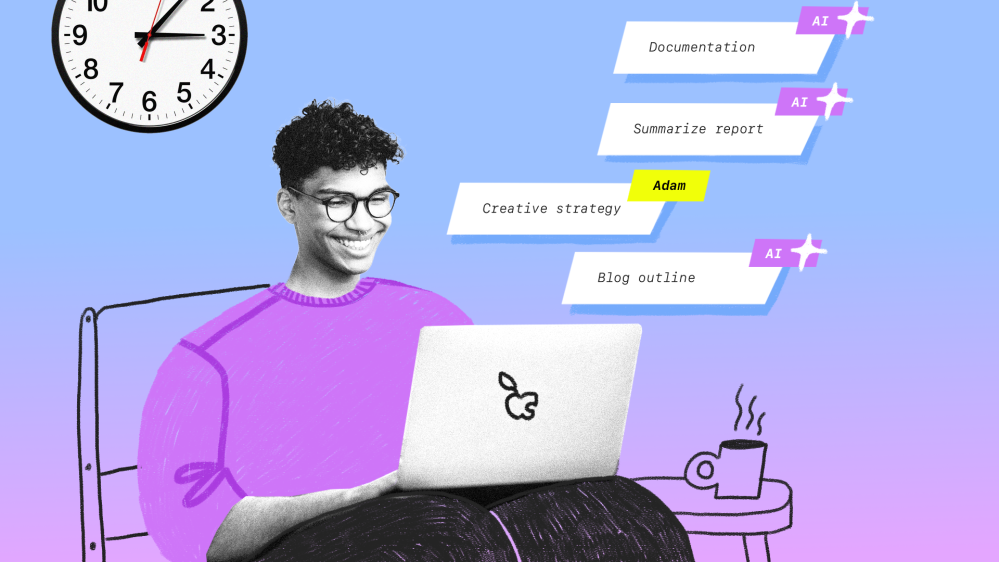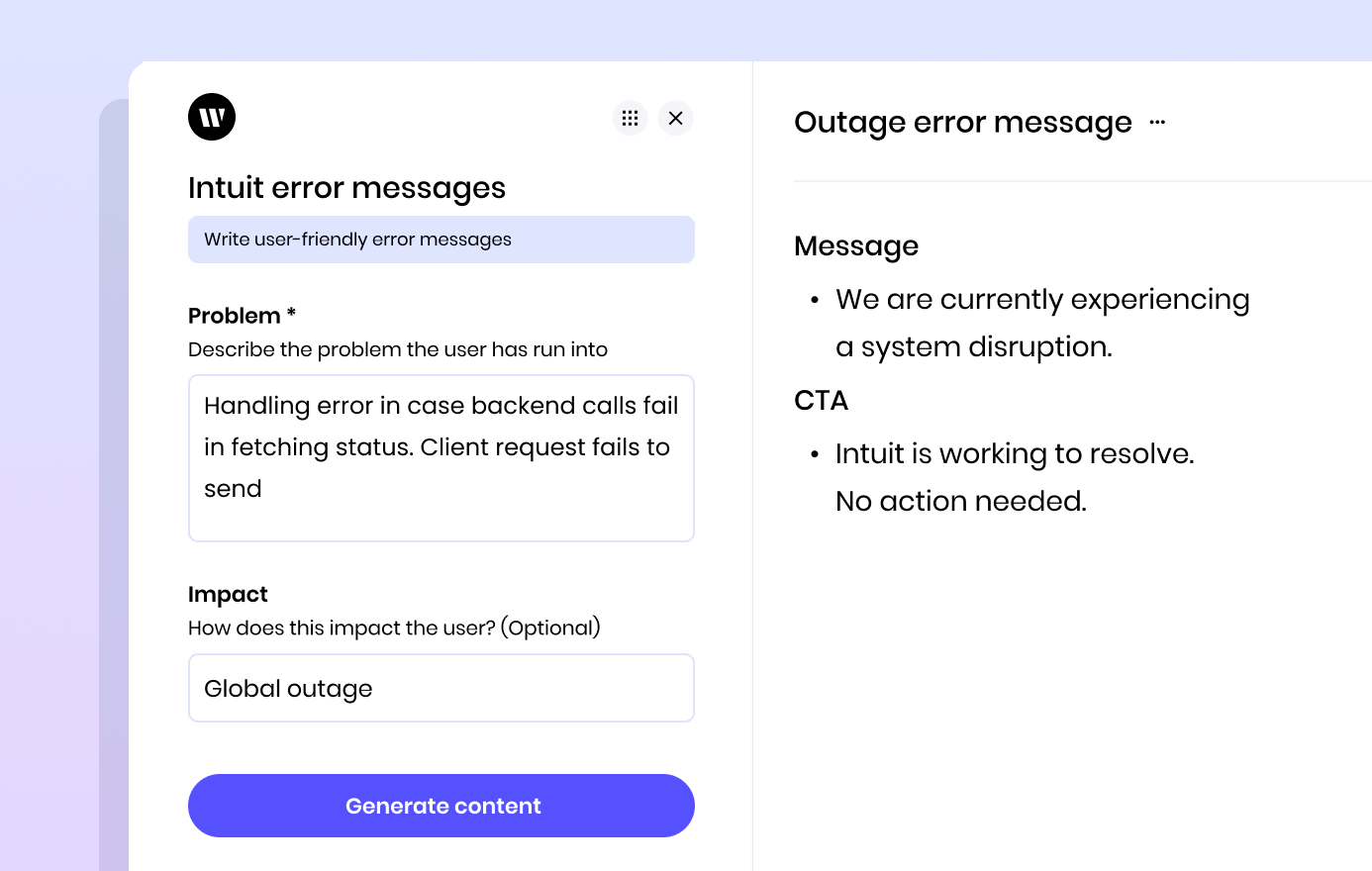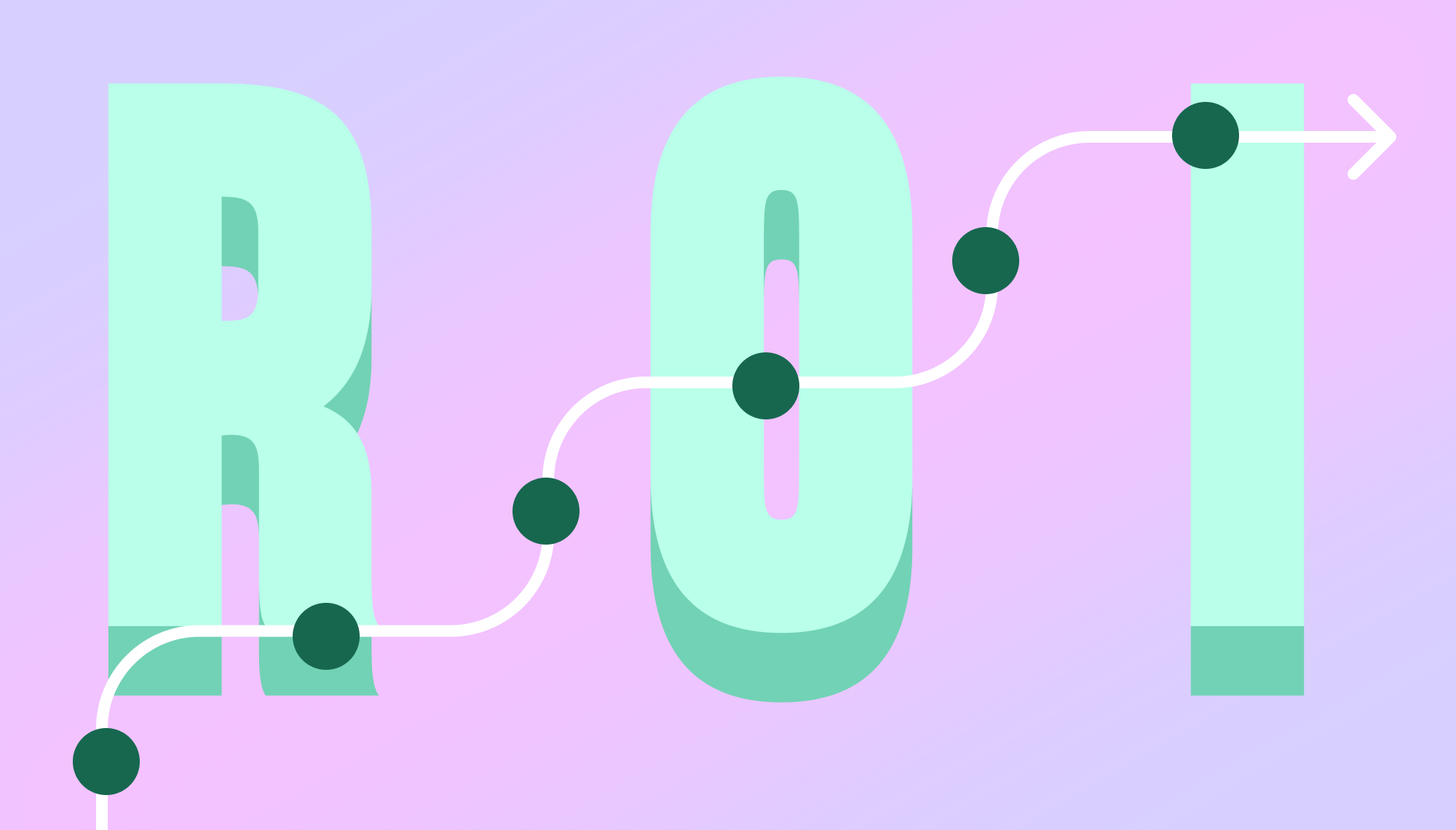AI in the enterprise
– 7 min read
The future of work in the generative AI era: Strategic, creative, and fulfilling

The phrase “that meeting should have been an email” is often tossed around, but it represents a lot of employee frustration. Their days are long and filled with work that isn’t meaningful. Employees crave workdays that are more productive and fulfilling.
“The future of work” started as a conversation around remote work, born from companies forced to rethink the office during the Covid-19 pandemic. But today, the future of work has evolved into a much larger discussion: how can technology enable people to show up as the best versions of themselves?
Facilitating remote collaboration was only a starting point. Now, forward-thinking companies view the future of work as a way to empower their employees to be more efficient and creative. Generative AI has become one way for many companies to realize this vision.
- Employees are seeking more productive and fulfilling workdays, with better work-life balance and less burnout.
- AI has the potential to revolutionize the workplace by automating routine tasks and allowing employees to focus on more strategic, creative, and fulfilling work.
- AI is creating new job opportunities and expanding growth opportunities for individuals willing to learn new skills and adapt to technological advancements.
- The pace of technological change is accelerating, and businesses and individuals need to embrace and adapt to this new normal to remain competitive.
Work-life balance is at the forefront
Forty-seven million Americans quit their jobs in 2021 and another 50 million quit in 2022, according to the US Bureau of Labor Statistics. Surveys cited burnout, low pay, and people feeling like they weren’t valued at work. Harvard Business Review summed up employee sentiment well: the pandemic “caused people to reconsider the role of work in their lives.”
But things haven’t improved. While quit rates might be lower, the Gallup State of the Global Workplace: 2023 Report finds that 44% of employees experience a lot of stress at work. Only 36% of employees are engaged at work. Leaders have spent years talking about how work can be better, but there’s still a long way to go.
Jobs that require long hours aren’t attractive to employees — especially if they know work can be better. Imagine being an employee, starting a new role, and learning that the company uses outdated technology or manual processes. The job just got harder.
In today’s world, that also includes companies that haven’t implemented AI. Employees know that AI and automation can speed up tasks. Without the latest technology, work is harder and more mundane. It can lead to longer hours and threaten the work-life balance that employees want.
We know that CEOs are feeling the pressure from employees to adopt generative AI technology. According to a report from Accenture, 94% of employees are confident that they can effectively adopt generative AI skills. However, executives have a different perception: 32% believe that skill gaps and talent scarcity are major barriers to adopting generative AI.
Employers need to trust and encourage employees’ willingness to adopt generative AI. And by investing in technology that enables them to do their jobs better, it’s a signal that employees are valued.
AI will reinvent the workday by removing drudgery
When routine and repetitive tasks are automated by AI, workplaces can become more focused on creativity. We use the term “creativity” loosely — it applies to any work that relies on human decision-making, innovation, or problem-solving. It’s the work that allows employees to feel valuable at their jobs because they’re contributing something unique, based on their expertise and experiences.
AI can reinvent the workday by allowing employees to be creative-first, rather than task-first or production-first. As an assistant to humans, AI can be incorporated into various business workflows.
Take technical documentation, for example. It’s necessary for many businesses but often painful to write. The changes have already been documented in a developer platform like GitHub, but need to be reworked into something an end-user can understand. Writing release notes can also delay pushing out a new release since documentation needs to be completed first. Generative AI can alleviate this mundane and time-consuming task for technical teams.
“Developers are not writers, and writing docs is their least favorite thing,” says Tina O’Shea, Director of Content Design and Design Tech at Intuit. Developers want to focus on what they’re good at: writing code.
Intuit uses the Writer API with GitHub, where developers publish their documentation. Using an AI app, Writer “helps [developers] get to the next step and makes sure everything is on brand and following our style before they publish,” says O’Shea.

Generative AI can also speed up the ideation-to-outcome process. Commvault conducts many customer interviews and uses Writer to generate an executive summary — something that’d take a human researcher hours to prepare by reviewing the transcripts. Instead, Writer can generate a paragraph-long summary, allowing Commvalut to accelerate its go-to-market motion.
“My team and I are freed up from [this work],” says Anna Griffin, Chief Market Officer at Commvault. “We’re getting insights faster and we’re executing on them and putting them into market faster.”
Growth and opportunities are expanding
AI has already become an onramp for people looking to enter new fields. LinkedIn reported that it’s seen a 75% increase each month in terms like “GAI,” “ChatGPT,” and “Prompt Engineering” being added to members’ profiles. There are a lot of opportunities for people who are hungry to learn as these skills begin to align with job postings and skill requirements.
The pace of skill acquisition we’re currently seeing will be the new normal. Lifelong learning, open-mindedness, and adaptability will be crucial skills for employees in the face of rapid technological advancement.
In addition to expanding job opportunities, AI has the potential to increase the amount of equity in the world. This potential is what drives May Habib, CEO of Writer.
“Equity is a fair shot at building a really good life for yourself,” she says. Writer is a platform that can be easily adopted and allows anyone to become AI-enabled — something Habib believes will create a more level playing field.
Read more about the role of an AI program director — and why every company should be hiring one today.
A disruptive pace is the new normal
Ahead of the World Economic Forum Annual Meeting in Davos, Switzerland, Accenture released its Pulse of Change: 2024 Index report. It found that technology was the number one cause of business change in 2023, catapulted by generative AI.
“The level of change has dramatically increased over the last few years, and it requires structural changes in how businesses operate,” said Jack Azagury, Group Chief Executive – Strategy & Consulting at Accenture. “Incremental changes in ways of working and performance are no longer sufficient to compete.”
Both employees and employers will need to adapt to this new normal. If they don’t adapt to the current pace of change, they’ll be left behind.
The pace won’t slow down, and may accelerate even more. The working world needs to brace itself, future-ready itself, and embrace the changes generative AI will continue to bring.
Read more about maintaining a people-first approach in our guide: Future-ready your people for an AI workplace.







